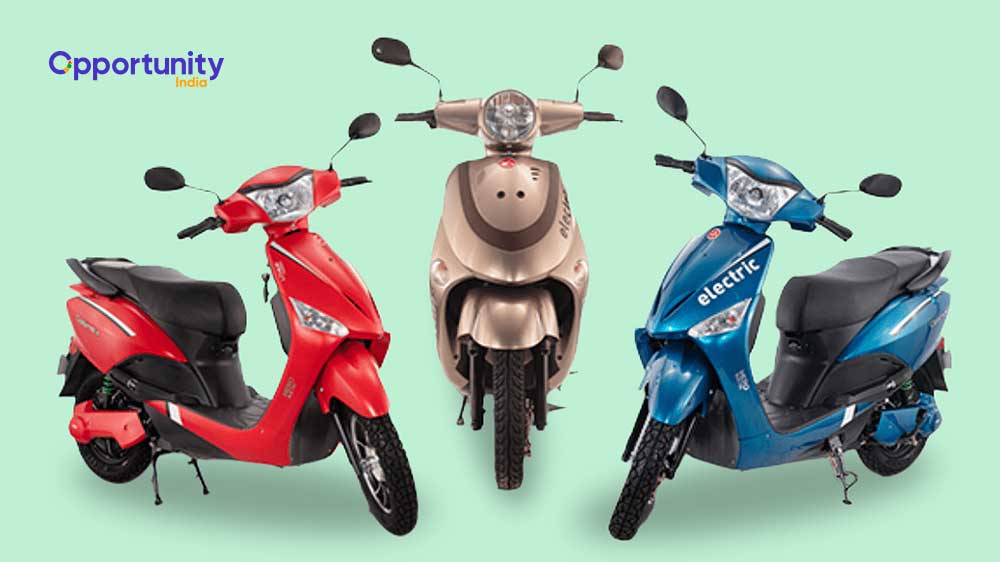NITI Aayog Submits Proposal For Inclusion Of EV Under PSL



Electric Vehicle or EVs better known as is the buzz word in the vehicle, automobile fraternity. The sales of the electric vehicles in India are witnessing a surge, with numbers such as July 2021 already surpassing the 2020 numbers. However the electric vehicle segment of India is in a nascent stage, the risks are yet unknown and unproved. At present it is only countable banks and financial institutions that are financing electric vehicles, that too at high interest rates.
At present Electric Vehicle Loans are given under the auto retail category. The borrower is not keen to borrow under this section. Niti Aayog which is the government policy think tank has submitted a proposal to the Reserve Bank of India (RBI); this proposal would work on categorising the EV loans under the priority sector lending segment.
Niti Aayog is at present also working with the World Bank setting up $300 million this being termed as ‘first loss risk sharing instrument.’ The programme manager for this facility is State Bank of India, under which the total financing is expected to be around $1.5 billion. Axis Bank and GuarantCo also partnered to guarantee a framework of $200 million towards accelerating the EV ecosystem.
How this would benefit the EV market. If the proposal is accepted, the segment will get credit at a lower interest rate. This means reducing the cost of finance, thereby allowing prospective customers to be converted into customers. This would undoubtedly strengthen penetration of EVs in India. The proposal which included extensive deliberation on EV in India, considered the possibilities EV would bring to the Indian car and automobile market. Primarily by reducing emission of greenhouse gases, thus adding to our commitments at COP26 in Glasgow, our contribution to the fight against climate change.

The push for Priority Sector Lending (PSL) status has also been visible from the manufacturers of both two and three wheelers. As per the Master Directions by the Reserve Bank of India (RBI) - Master Directions - Priority Sector Lending - Targets and Classification updated as on October 26, 2021. The description of eligible categories under priority sector as of now is: Agriculture, Micro Small and Medium Enterprises (MSMEs), Export Credit, Education, Housing, Social Infrastructure, Renewable Energy, Weaker Section and Others. Under the PSL framework out of the total lender’s credit 40% must be compulsorily loaned to the sectors mentioned. PSL is used by RBI to direct financing to credit-starved sectors.
This is just the start; the process will include widespread discussion, planning and analysis. It is only when increased access and reduced cost to this sector will set the ball rolling for its inclusion under PSL. India has set a target of lowering the total projected carbon emission by 1 billion tonnes till 2030 at the Glasgow Climate Change Conference which was recently held last month. 1 billion tonnes till 2030 means 45% total reduction in the carbon intensity of the economy, summing up to cutting emissions to net zero by 2070.
EV sales more than tripled to 118,000 units in the first half of FY22. Sales tripled to 118,000 units; there was a shortage of semiconductors that forced automakers to cut down on production. With consumers opting for cleaner fuel there is an increase in the EV market both at the demand and supply side. Falling battery prices, improved charging infrastructure, price parity with conventional vehicles and outreach by manufacturers is helping the electric vehicle market in India.
What is making the lenders reluctant is the technical aspect of EV; this includes battery, shelf life, total cost of operation and residual value financing the EV market will be the make or break factor for this segment. Very evidently there are hiccups in financing in the EV space and the reasons are several. The resale market is almost nonexistent making the banks wary about the EVs residual and depreciation value, these inexperienced waters is what is making financing the vehicle very high cost. Many lenders are taking the wait and watch approach; cautious as they may be NBFCs are the forerunner and entering the market.
